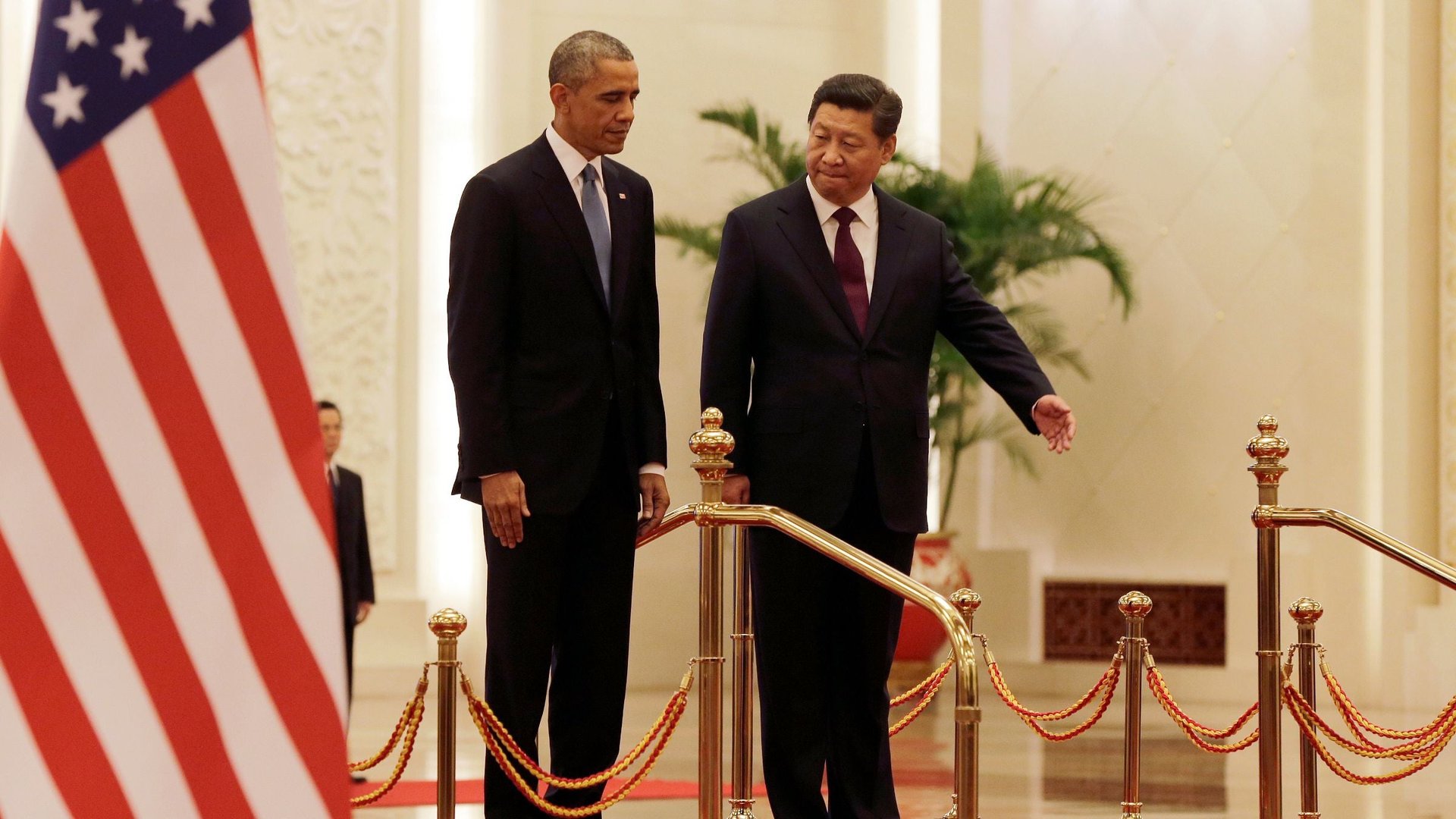The difference between the US and China’s global leadership in one tweet
The political furor of the day in the US was the Obama administration’s decision not to send anyone more visible than the American ambassador to last weekend’s dramatic march in Paris, where numerous world leaders joined millions in solidarity with the terrorist attacks there.


The political furor of the day in the US was the Obama administration’s decision not to send anyone more visible than the American ambassador to last weekend’s dramatic march in Paris, where numerous world leaders joined millions in solidarity with the terrorist attacks there.
But nobody’s asking the same question of the supremo in the other global super-power, Chinese president Xi Jinping, which has had faced its own terror problems recently. Chinese leaders aren’t expected to pay attention to anything but their own interests; indeed, their official news agency’s response to the Charlie Hebdo attacks was to make the case for more press limits.
If the measure of a country’s soft power is what people expect of their leaders, even in truancy Obama is demonstrating the advantage US leaders have over their undemocratic rivals—if only they can seize it. That’s why the White House was wise to admit it erred in not sending a high-ranking stand-in, citing security concerns and a tight timeline.
Most of the complaints about Obama absence—and that or of his vice-president, Joe Biden—can chalked up to the politicking of domestic opponents eager to score points by calling the administration soft on terror. Ironically, the loudest critics, like Senator Marco Rubio, have defended NSA surveillance policies that upset many European nations, and decried international institutions for limiting US power abroad.
But solidarity can’t be merely a staged photo, with no actual willingness to engage in diplomacy. The reality of the US’s support for France and free-speech can be seen in the American public’s response to the tragedy, and in the administration’s law-enforcement cooperation or, more dubiously, its vast counter-terror apparatus. If this is a question of politics, the prudent Obama might have been concerned about the the possibility of offending French leaders, as Israeli prime minister Benjamin Netanyahu apparently did, or getting caught up in hypocrisy politics.
When it comes to the US position in a world where economic forces are re-aligning the relative power of countries, courting global public opinion on human-rights issues is a unique advantage over countries with authoritarian systems. That was the opportunity the Obama administration missed last week—but it’s probably not as bad as embracing international solidarity without respecting it.